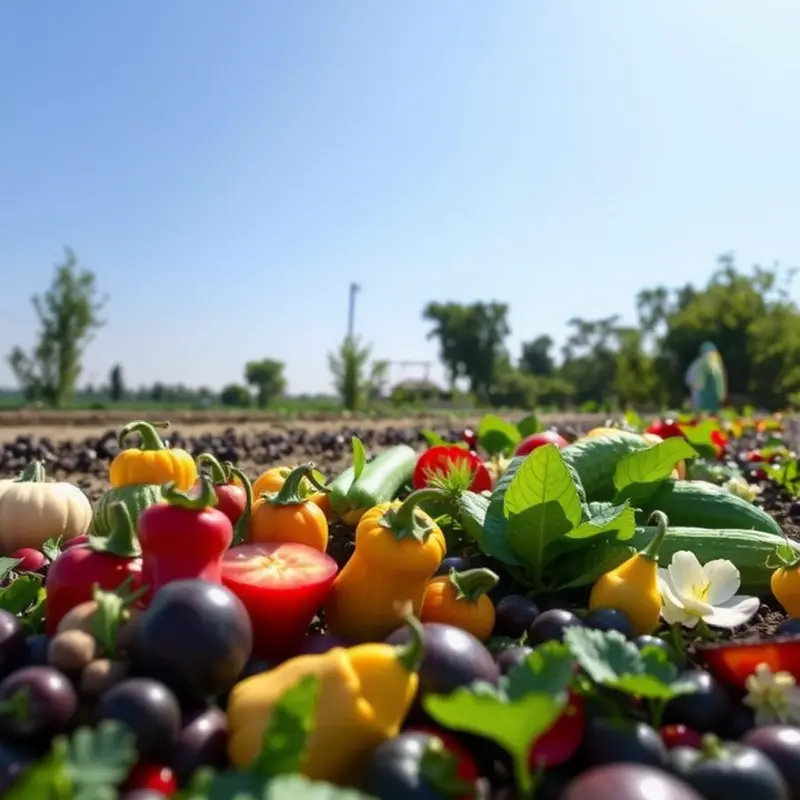Food scarcity mindset can cloud our relationship with nourishment and well-being. By exploring strategies that foster emotional health and mindful eating habits, we can shift our perspective. This journey involves understanding core beliefs around food, embracing abundance, and creating a fulfilling relationship with what we eat.
Understanding Food Scarcity Mindset

The food scarcity mindset roots itself in deep-seated beliefs that perpetuate a sense of lack and insufficiency surrounding food. This mindset is more than an occasional worry about missing a meal. It manifests as enduring anxiety over whether there will be enough food, even if objective access to food is sufficient.
Several emotional triggers contribute to this mindset. Fear, anxiety, and past experiences of deprivation fuel a perception that there will never be enough to eat. These feelings often surface in behaviors such as hoarding food, overeating, or feeling guilt when consuming meals. Understanding these triggers involves reflecting upon one’s personal history with food — childhood limitations, economic hardship, or cultural attitudes toward food scarcity can profoundly shape perceptions and behaviors.
Societal influences further engrain this mindset. Media messages and advertising often evoke urgency and fear around food availability or consumption trends. For instance, issues like food shortages resulting in price hikes create a collective panic, fostering a cycle of scarcity consciousness. Additionally, social norms that celebrate scarcity-driven achievements — such as extreme dieting for quick weight loss — can condition individuals to equate self-worth with managing without.
Recognizing patterns of food scarcity mentality begins with mindful observation of thoughts and behaviors related to food. Notice if you often worry about not having enough food or if you experience stress when food options are limited. An effective strategy is to journal your food-related thoughts and feelings over a week. Reflect on feelings that emerge during grocery shopping, meal preparation, or dining, noting any patterns of fear or inadequateness.
Reframing these thoughts involves embracing a mindset of abundance and gratitude. Start by intentionally appreciating the food you have, cultivating gratitude for each meal. Engaging in practices such as mindful eating can transform your relationship with food, promoting a sense of plenty. Mindfulness brings attention to the present, reducing anxiety about future scarcity by focusing on the nourishment available in the moment.
Moreover, integrating practical approaches can support this transition. Explore sustainable ways to manage your food resources, such as eco-smart kitchen storage tips, which can alleviate scarcity fears by promoting efficient and creative use of your food resources. This practical step reduces waste, extends the lifespan of food, and helps maintain a perspective that there is indeed more than enough.
Linking the physical and emotional aspects of your eating patterns with broader cultural influences allows for a holistic understanding. By recognizing, acknowledging, and addressing the emotional roots of food scarcity mindset, individuals can gradually shift towards a healthier, more abundant relationship with food.
By focusing on abundance, we cultivate a nourishing perspective that extends beyond the plate, enhancing overall emotional wellness and life satisfaction. It’s an enriching journey toward fostering a sense of security and flourishing in all aspects of life.
Nurturing a Mindful Eating Practice

Mindful eating transforms routine meals into moments of introspection and appreciation. It’s more than a dietary choice; it’s a practice of presence. By eating mindfully, we engage fully with our food, savoring every flavor, texture, and aroma.
One effective tool for mindful eating is to start with a few deep breaths before each meal. This helps center your focus and prepare your senses for the experience ahead. As you begin to eat, slow down. Put your utensils down between bites to prolong the enjoyment and prevent rushing.
Listening to your body’s hunger cues is essential in fostering a healthy relationship with food. Before reaching for a snack, ask yourself if you’re truly hungry or if emotions like stress or boredom are influencing your desire to eat. This practice helps to align eating habits with genuine physical needs.
Gratitude plays a significant role in mindful eating. Acknowledging the journey of your meal from farm to table cultivates a greater appreciation for food. Reflect on the resources, labor, and love that contribute to every meal. This perspective encourages sustainable choices and reduces food waste.
Creating a supportive eating environment enhances the mindfulness journey. Start by organizing your eating space to minimize distractions. Ensure that electronics are put away during meals, allowing a focus on food and company. Involve friends and family by preparing meals together, turning food preparation into a bonding activity.
Consider exploring new flavors and cuisines as a way to deepen your connection with food. Experimenting with different ingredients can enhance your palate and understanding of various cultures. For inspiration, discover flavor boosters without salt to invigorate your dishes.
Promoting emotional health through mindful eating involves both acceptance and patience. Understand that developing new habits takes time. Avoid self-judgment and embrace progress over perfection. Celebrate small victories such as choosing fruits over sugary snacks or cooking a new recipe. These moments reinforce positive experiences around food.
Lastly, journaling your eating experiences can provide insights into your relationship with food. Document the emotions and sensations felt during meals, the gratitude expressed, and the satisfaction experienced. This reflective practice highlights patterns and encourages ongoing mindfulness.
By nurturing a mindful eating practice, you not only enrich your meals but also your overall sense of well-being. Embrace this journey toward emotional wellness and a more abundant life, sustained by intentional and nourishing food choices.
Final words
Breaking free from a food scarcity mindset involves recognizing emotional triggers, reframing beliefs, and nurturing a mindful eating practice. By embracing abundance and cultivating gratitude towards food, we can enhance our relationship with nourishment. Change takes time, and small steps in awareness and choice can lead to lasting improvements in emotional health and fulfillment. Remember, nurturing yourself with wholesome food goes beyond the plate; it’s about acknowledging your worth and developing a compassionate relationship with what you consume.







